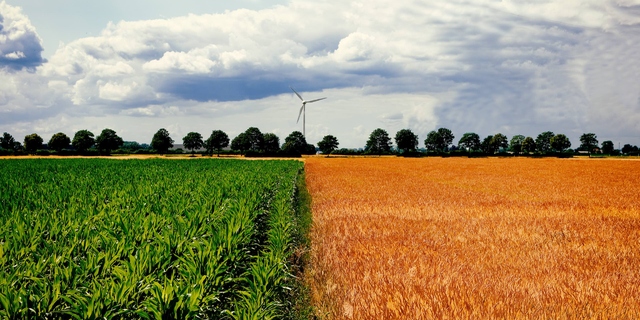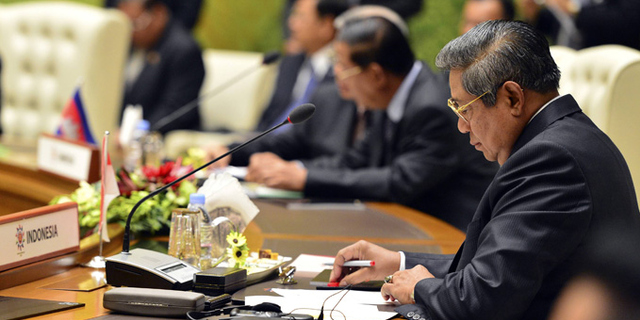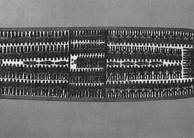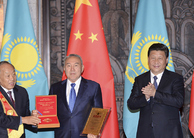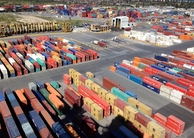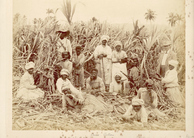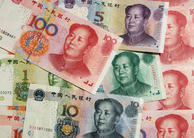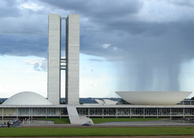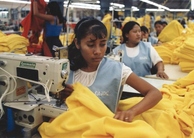|
Trade (tagged articles)
The keyword Trade is tagged in the following 36 articles.
2021, Vol. 13 No. 03
Intersecting Edouard Glissant’s poetics with Hortense Spillers’ theory of race, gender, and sexuality alchemizes a new conception of the Middle Passage’s spatiotemporality. With the slave Trade haunting the living, this paper attempts... Read Article »
2021, Vol. 13 No. 01
Israel has increased the nation’s security presence around the Gaza Strip and in the West Bank. Here, the research project analyzes how transaction costs resulting from Israeli security policy impact the output of manufacturing activities... Read Article »
2019, Vol. 11 No. 01
Globalization is generally studied as a process that extensively impacts nations and peoples across every aspect of society. Empirical and theoretical research largely focuses on this effect, seeking to discover the impact of an increasingly globalized... Read Article »
2017, Vol. 9 No. 02
The necessity to grow crops faster and more efficiently has long been a goal for the agriculture industry. Now, through the development of GMOs, this goal is being achieved. However, many critics doubt the reputation of GMOs, instead arguing that... Read Article »
2016, Vol. 10 No. 1
Economic regionalism has been an observable phenomenon worldwide. Many countries around the world pursue some degree of economic integration with neighbouring countries, in the hopes of capitalizing on the benefits of such an arrangement. At the... Read Article »
2016, Vol. 3 No. 1
The paper “Does Trade Liberalization Lead to Declining Fish Stock Health? Analyzing the Causality” by Erin K. Glenn has been removed from this volume. The editorial board of The Developing Economist decided to withdraw this article... Read Article »
2014, Vol. 1 No. 1
Whereas the standard economics textbook literature motivates the emergence of money by pointing to the inefficiencies of barter economies, there is virtually no historical evidence that this is how money actually came about. Due to the lack of evidence... Read Article »
2016, Vol. 9 No. 1
The New Silk Road, formally termed the Silk Road Economic Belt and also known as the "One Belt, One Road," was first proposed by China's President Xi Jinping during his 2013 visit to Central Asia. This initiative aims to revive the historical vitality... Read Article »
2015, Vol. 6 No. 1
This paper investigates the relationship between various types of economic freedom and intra-EMU export growth. Export growth is the primary empirical puzzle that this paper seeks to explicate, and is important because the EMU's inception preceded... Read Article »
2015, Vol. 2 No. 1
I test a modified value-added real effective exchange rate based on the construction by Bems and Johnson (2012) for suitability as a replacement for conventionallyconstructed real effective exchange rates for countries with high vertical specialization... Read Article »
2015, Vol. 7 No. 03
The use and effectiveness of capital controls in emerging market economies is important to examine because of the potentially damaging effects that these controls may have on a country’s economic growth and development, especially if the country... Read Article »
2014, Vol. 2014 No. 1
On May 18th, 2000, the United States enacted the African Growth and Opportunity Act (AGOA), dramatically expanding Trade between itself and Sub-Saharan Africa over the following decade. Yet whereas previous studies in the literature have often sought... Read Article »
2014, Vol. 4 No. 2
This paper investigates factors that contribute to the effectiveness of international economic sanctions. A review of existing literature on sanctions reveals that scholars of economic statecraft have largely neglected to consider two variables &... Read Article »
2014, Vol. 6 No. 04
Colonial-era fictional and non-fictional descriptions of slave motherhood offer conflicting accounts of the attitudes of slave mothers toward their children. While abolitionists tended to portray slave mothers as wholly selfless, doting, and maternal... Read Article »
2014, Vol. 1 No. 1
A European single market for electricity is modeled to find the optimal portfolio of energy generation technologies in the presence of a carbon tax. The goal is to find the Pareto optimal carbon tax rate such that both carbon emissions and production... Read Article »
2014, Vol. 2013/2014 No. 1
The recent economic crisis roved to be immensely threatening to the economic equilibrium within the European Union (EU). Beginning in the United States, it then proved its "domino effect" by covering the EU, resulting in so-called 'financial stress... Read Article »
2013, Vol. 5 No. 08
This report examines the Chinese economic model, the potential for future Chinese growth, and the implications for Australia. An examination of factors that have contributed to the rise of the modern Chinese economy including demographic factors... Read Article »
2013, Vol. 3 No. 1
Given the importance of the global defense Trade to geopolitics, the global economy, and international relations at large, this paper examines the political economy of the U.S. defense industry. The goal of this study is to determine the extent... Read Article »
2012, Vol. 2 No. 1
The research completed aimed to show that the idea of fair Trade, using the example of goals for the chocolate industry of the Ivory Coast, can be described as an example of the economic ideal which Karl Marx imagined. By comparing specific topics... Read Article »
2012, Vol. 4 No. 11
It has been argued that the global trading system is supposed to promote global efficiency and growth, but a rising chorus of voices is asserting that the global economy operates in a way that is fundamentally unfair and seems to be ‘rigged... Read Article »
2012, Vol. 4 No. 08
The question of whether economic relations have an impact on interstate military conflict has divided scholars and political thinkers since the Enlightenment. Kant claimed that economic interconnectedness among states would contribute to long-term... Read Article »
2012, Vol. 4 No. 08
The relationship between Trade and conflicts between countries in South Asia is important to examine because of the rising prominence of this region of the world. Security issues are of utmost concern when considering the damaging effects that armed... Read Article »
2012, Vol. 4 No. 06
With their long-term orientation, environmental problems present a unique challenge to the system of policymaking in the United States. The question of how to address climate change—and in particular, how to mitigate the phenomenon—has... Read Article »
2012, Vol. 5 No. 2
The rise and entry into force of the 2008 Convention on Cluster Munitions (CCM) that prohibits cluster bombs constitutes a global prohibition regime. I argue that this new prohibition regime and the arising new international norm set by the CCM,... Read Article »
2012, Vol. 4 No. 01
Does candidacy to the European Union (EU) increase a nation’s Trade Openness? A good way to begin examining this question is by asking, what is Trade Openness? Simply put, it is a nation’s imports plus its exports divided by its GDP ([... Read Article »
2012, Vol. 2011/2012 No. 2
This essay will analyse the on-going events in the Eurozone single currency area. It will look at the current sovereign debt crisis, most obviously manifested in Greece, Portugal and Ireland, and try to envisage how it will change the future course... Read Article »
2012, Vol. 2011/2012 No. 2
In spite of the above-described traditional sentiment that the European Union (EU) was primarily an economic actor, with all other priorities seconded to that fact, Trade policy has been inextricably linked with the EU’s international presence... Read Article »
2011, Vol. 5 No. 1
In 2001, Goldman Sachs named Brazil one of the four most important emerging economies, with China, Russia and India.1 The BRICs, a term coined by Jim O’Neill, are prophesized to become four of the top six economies in the world by 2050,2 and... Read Article »
2011, Vol. 2011/2012 No. 1
The Economic Monetary Union (EMU) is the end point of an ambitious and historic stage of integrated market changes1 that not only challenge the structure and foundation of modern-day liberal capitalism, but also offer – where successful &ndash... Read Article »
2010, Vol. 2 No. 11
Learning to play guitar is painful. For the first months, the coarse steel of the guitar strings shreds the soft skin of the player’s fingertips into a disgusting bloody mess. A reasonable person who does not play guitar would be entirely... Read Article »
2010, Vol. 2 No. 03
The United Nations states that at its broadest, Corporate Social Responsibility (CSR) can be defined as the overall contribution of business to sustainable development (UNDESA, 2007). That being said, unmonitored corporate social responsibility... Read Article »
2010, Vol. 2 No. 01
Frederick Douglass’ statement about slavery concisely defines the effect that such an institution had on the entire shape of a nation: Without slavery, how does one understand freedom? For hundreds of years, the United States thrived economically... Read Article »
2010, Vol. 2 No. 01
It has become undeniable that illicit weaponry, specifically small arms and light weapons pose an unprecedented global security threat. In fact it may almost be acceptable to say that with the turn of the 21st century, we witness a world which is... Read Article »
2010, Vol. 2 No. 01
The attacks of September 11th have frequently been characterized as unimaginable, capable of inflicting confusion and emotional trauma beyond the scope of other historical events. On September 12th, 2001, N.R. Kleinfeld of the New York Times asserted... Read Article »
2009, Vol. 3 No. 1
Few would disagree that the most significant development at the G-20 meeting in Pittsburgh during September 24-25, 2009 was the formal acknowledgement of the changing of the guards. In the draft communiqué, President Barack Obama declared... Read Article »
2009, Vol. 1 No. 10
On January 1, 1994, the day the North American Free Trade Agreement, the great neoliberal experiment that tested the economic waters of the post-cold war world went into effect, the southern Mexican state of Chiapas was under siege. They came from... Read Article »
Expedited Article Review
Submit an article and get a decision fast.
If you need a fast decision, INQUIRIES Journal offers expedited processing of your submission for a small fee. Depending on the expedited review option you choose, you can receive a decision in as few as 5-days.
In addition to a shorter review period, the fee supports the journal's continued operation and open-access publishing model. Standard submissions are always free. Submit Now » - Submit an Article to Inquiries Journal -
|




